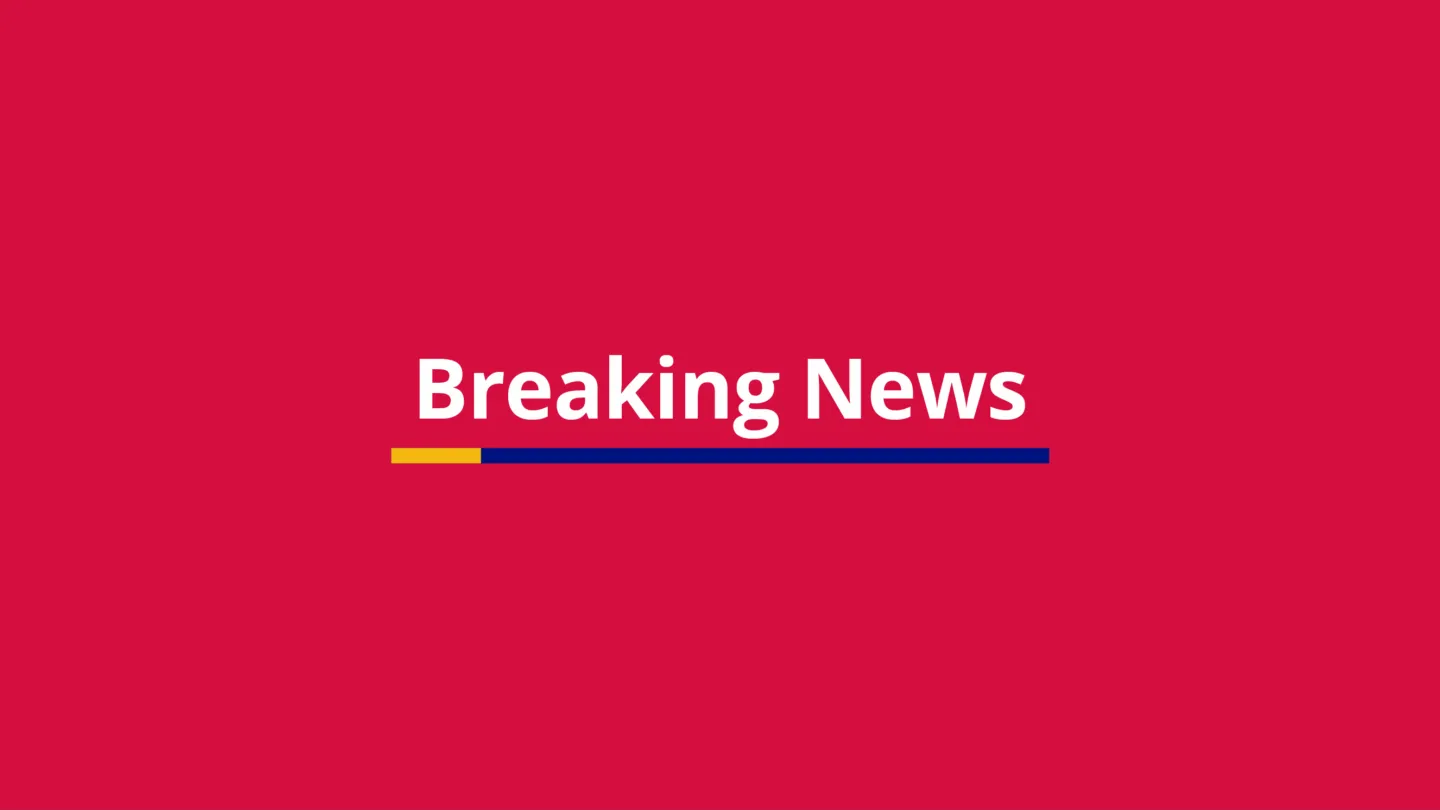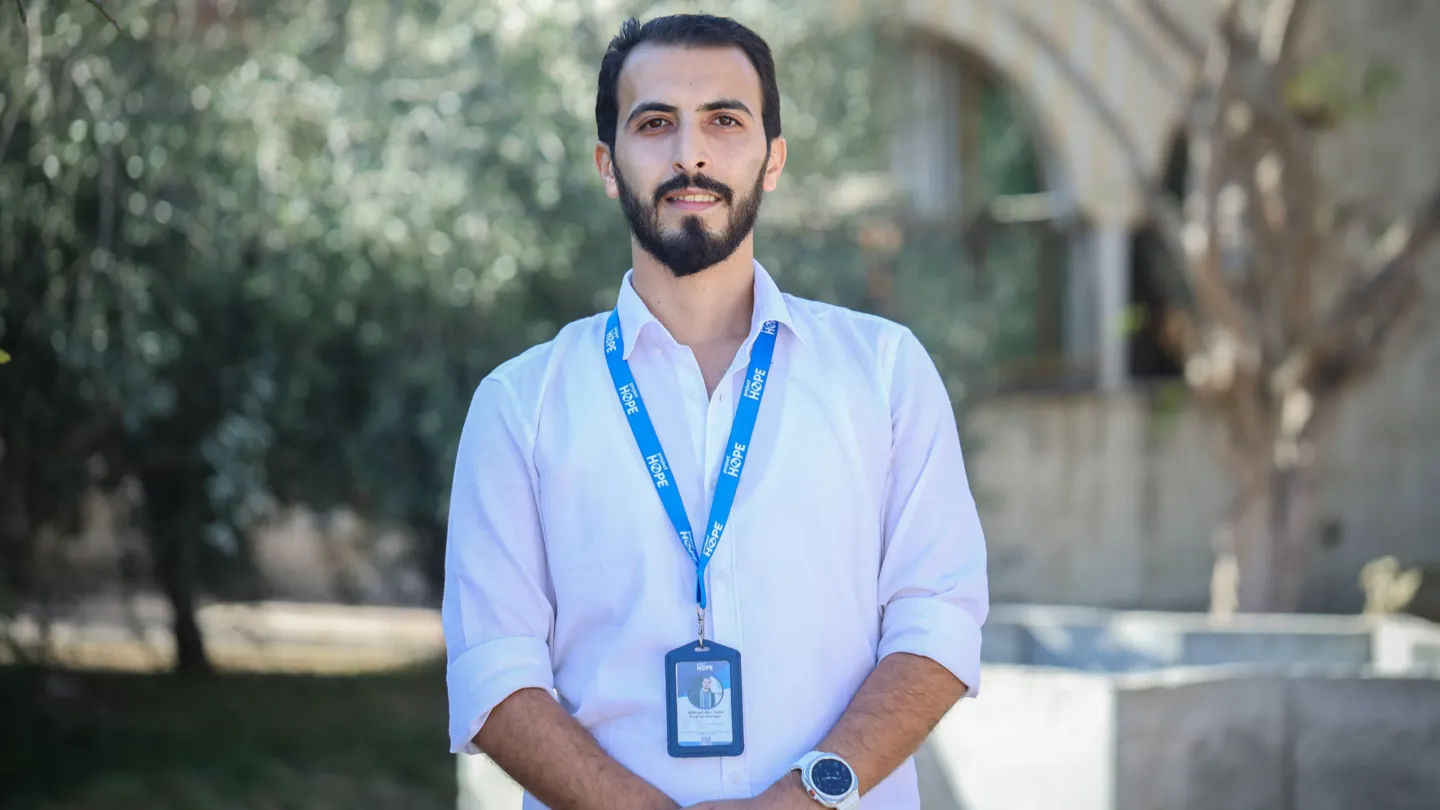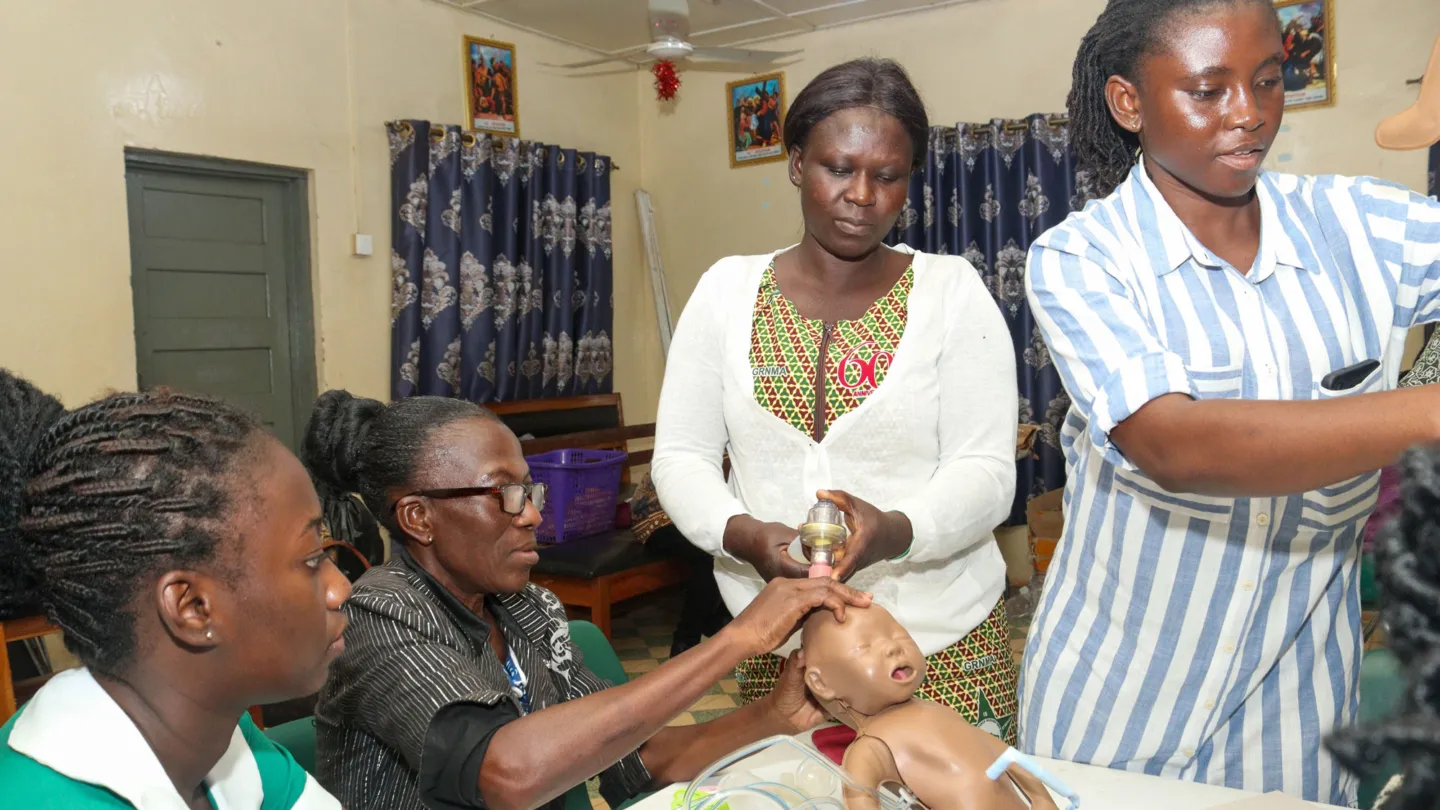Crisis in Lebanon: What You Need to Know
Project HOPE is on the ground in Lebanon mobilizing supplies and deploying surge staff in response to the ongoing humanitarian crisis. Learn more about our response and how you can help.
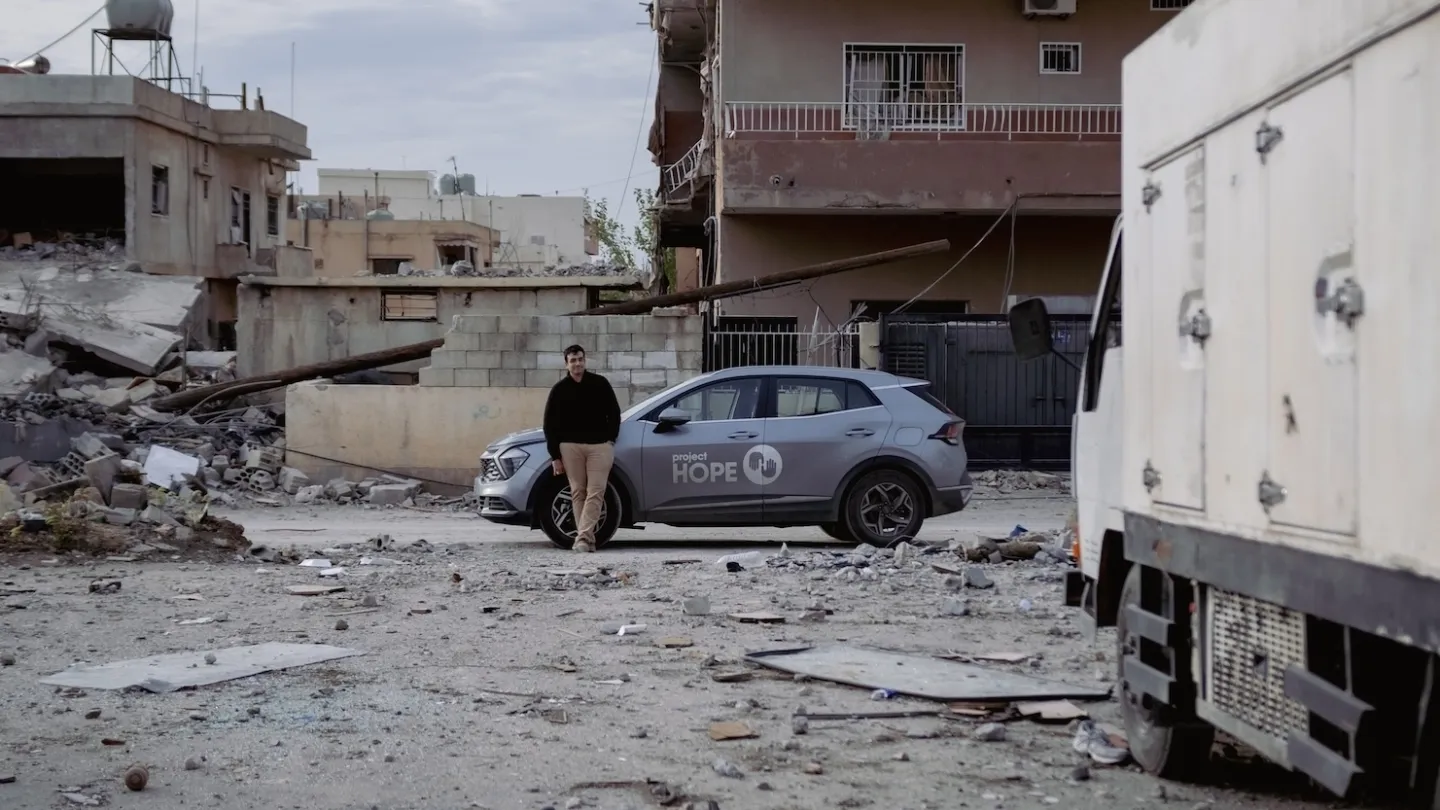
The humanitarian situation in Lebanon remains critical. Hostilities between Hezbollah and Israel left deep scars on civilians and civilian infrastructure alike, exacerbating pre-existing vulnerabilities and creating extensive humanitarian needs that must be addressed in order to re-stabilize communities and ensure a healthier future for Lebanon.
From October 2023 to December 2024, over 17,000 people were injured, more than 4,000 killed, and 1 million displaced. Now, as communities attempt to recover, families are returning to villages that have been decimated by violence and health workers are coping with the chaos of the past 16 months, placing immense pressure on Lebanon’s health system.
>>Read our latest Situation Report for our Lebanon Response
>>News Alert: Project HOPE Launches Emergency Response in Lebanon
What is happening in Lebanon?
The Israeli military and Hezbollah exchanged airstrikes on both sides of the Israel-Lebanon border since conflict erupted on October 7, 2023. On September 23, 2024, the Israeli military launched airstrikes throughout southern Lebanon, the Beqaa Valley, and the Beirut suburb of Dahiyeh after a week of escalation that started with a two-day wireless device explosion attack in Lebanon and a significant increase in airstrikes from both parties.
September 23 was the deadliest day of violence in Lebanon since 2006, with nearly 500 people killed, including women, children, and humanitarian workers.
On September 29,2024, the Israeli military initiated a ground offensive into southern Lebanon, supported by continuous naval and air strikes. The operation marked a significant escalation in hostilities between Israeli forces and armed groups in the region and is likely to cause further displacement and an intensification of humanitarian needs.
Around 800 shelters—primarily public schools—were designated by the Lebanese government to receive IDPs in the Beirut and Mount Lebanon governorates.
Now, following the November 2024 ceasefire and multiple mass displacements, health facilities in Lebanon need equipment, medical supplies, rehabilitation, and mental health and WASH capacity to meet the needs of families attempting to recover. Children are reeling from the disruption to their daily routines, the damage to their communities, and the loss of their sense of safety.
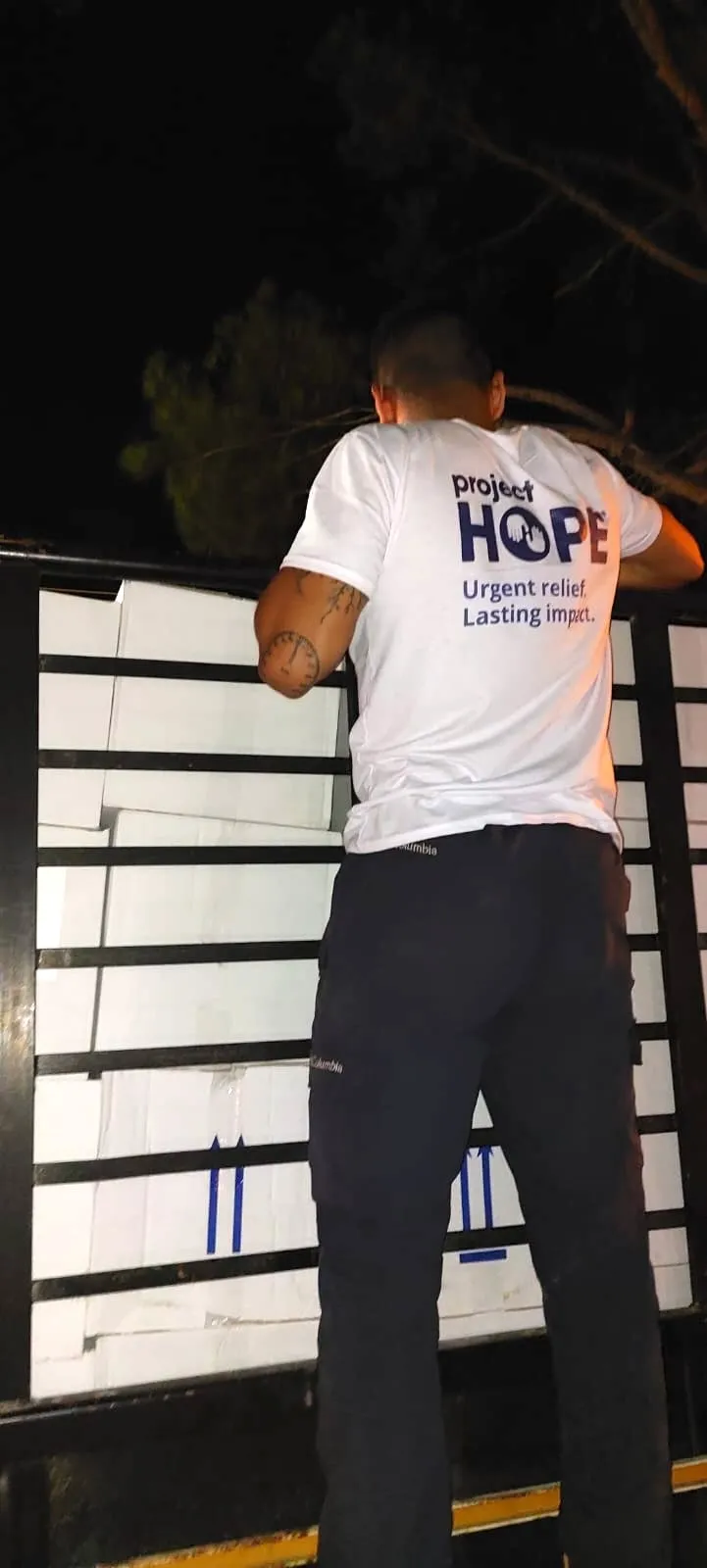
What is Project HOPE’s response?
Project HOPE’s team in Lebanon continues to coordinate with key local actors since conflict erupted in the region on October 7, 2023. Following the recent ceasefire, our team continues to deliver critical humanitarian support across Lebanon, addressing the needs of communities made vulnerable by the ongoing crisis by delivering medical supplies, strengthening the capacity of mental health providers, and improving access to health care in the most affected communities.
In response to exacerbated humanitarian needs at the height of the conflict, Project HOPE:
- Operated a mobile medical unit staffed by dedicated local doctors and nurses
- Provided surge nursing support to a primary health clinic in the Mount Lebanon region
- Finalized the certification of 25 local frontline responders to train their peers in Psychological First Aid
- Distributed hygiene kits, pillows, and winterization supplies to displaced families
Project HOPE has worked in close coordination with the Ministry of Public Health to provide critical medications and emergency trauma supplies to health workers who are tirelessly treating thousands of injuries and saving lives. Given that Lebanon’s health system was already weakened prior to the recent escalation, Project HOPE is also focused on securing essential medications and medical supplies to strengthen the health system and ensure continuous care for individuals with injuries and chronic conditions.
Project HOPE’s recent health assessment of 16 primary health care centers across Mount Lebanon, South, Beqaa, Nabatieh, and Baalbeck-Hermel governates identified critical gaps in health care delivery. To address these gaps in service delivery, Project HOPE is looking to subsidize the cost of essential services, provide urgently needed medicines and supplies, repair damaged facilities, and train health workers to strengthen their capacity and build long-term resilience.
We remain committed to coordinating closely with key local actors to streamline efforts, share information effectively, and avoid duplication of humanitarian responses. Project HOPE continues to call for an end to the violence throughout the Middle East in order to protect civilians and enable uninterrupted access to critical health and humanitarian aid.
Operated a mobile medical unit staffed by dedicated local doctors and nurses
Provided surge nursing support to a primary health clinic in the Mount Lebanon region
Finalized the certification of 25 local frontline responders to train their peers in Psychological First Aid
What are the greatest health needs in Lebanon?
Lebanon’s health system was at its breaking point even before the latest escalation of violence, including severe shortages of staff, medicines, and equipment.
Mental health needs are intensifying for communities who were already struggling under the constant threat of conflict and displacement. People exposed to trauma need mental health support and psychosocial services; displaced families need stability, safety, and health care; and the local health system needs support to ensure it does not collapse.

What is Project HOPE’s history in Lebanon?
In 2020, immediately following the Port of Beirut explosion, Project HOPE launched a response to provide trauma care and psychosocial support through our local partner, Rene Moawad Foundation (RMF). Project HOPE supported local health workers by procuring and distributing medicines, medical supplies, and hygiene supplies.


